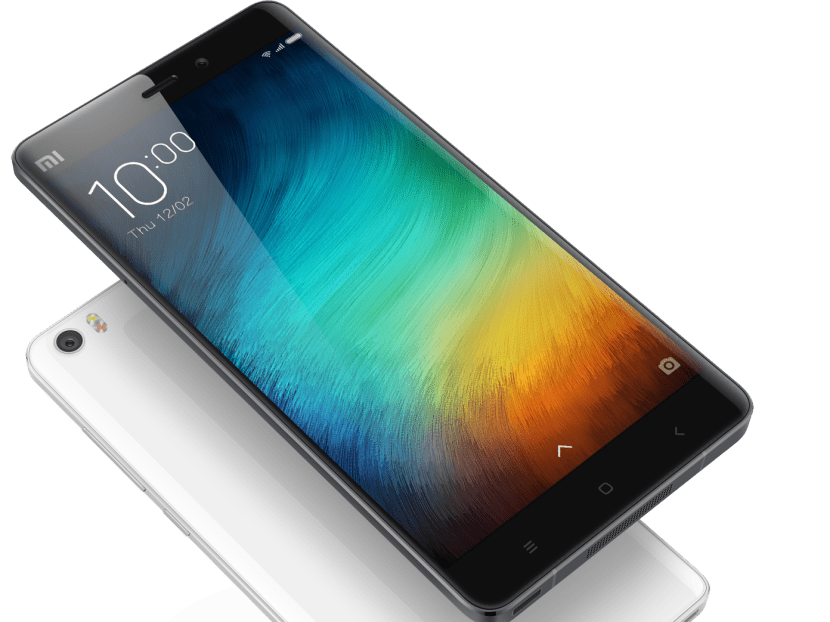Xiaomi partners with Uber to deliver new flagship phone
SINGAPORE — Chinese phone maker Xiaomi, popular for its value-for-money smartphones, is going upmarket with the launch of its most expensive phone, the Mi Note, which is more than two times costlier than the company’s next priciest offering.

The Mi Note. Photo: Xiaomi
SINGAPORE — Chinese phone maker Xiaomi, popular for its value-for-money smartphones, is going upmarket with the launch of its most expensive phone, the Mi Note, which is more than two times costlier than the company’s next priciest offering.
Xiaomi will distribute the new phone in style, as it is, for the first time, collaborating with car-sharing and taxi-booking company Uber to deliver the phones to some customers in Uber’s cars.
At S$569, the 5.7-inch, 64GB Mi Note looks to compete directly with the likes of the 5.5-inch iPhone 6 Plus. Currently, the most expensive of Xiaomi’s stable of phones is the Mi4i, which is priced at S$279. In March last year, it launched the Mi3 for S$419, but it is no longer on sale.
“At half the price of the iPhone 6 Plus, it is still value for money,” Mr Steve Vickers, general manager for South-east Asia at Xiaomi, said at the launch event today (July 24). “As the industry moves, and there are different niches within the market. We are always looking to compete within these niches and price our product competitively.”
The Mi Note’s ultra-thin 6.95mm frame packs a 3,000mAh Li-ion battery, a quad-core Qual-comm Snapdragon 801 2.5GHz processor and 3GB RAM.
The phone will be made available in a limited quantity at a flash sale for Uber users, who will be able to buy it using the Uber app, a day ahead of the official sale date next Tuesday.
Uber’s general manager, Mr Yaniv Goder, said the company aimed to deliver the phone to customers using Uber cars “as quickly as within a few minutes”, although it could be longer.
“It is our first time delivering phones on demand,” he said, adding that the company had been collaborating with other companies to deliver products, such as ice cream, on demand.
“We expect very high demand, and we are ready to meet it,” Mr Goder said.
Mr Vickers said: “We approached Uber as we had this desire to help our customers get their hands on the product as soon as possible. E-commerce has this lag between purchase and delivery, so we were trying to see if we could come up with ways to reduce this lag.”
Most customers order Xiaomi phones from its online store. Uber will also be scooting around to deliver the Mi Note to customers in Kuala Lumpur on the same day, and Xiaomi is setting its sights on other cities in Asia.
Meanwhile, Xiaomi is, for the first time, working only with Singtel to distribute the Mi Note to post-paid customers. Its other models are still available through all three telcos in Singapore. When asked why, Mr Vickers said: “We are constrained in terms of the volume that we are trying to push out to the market.”





